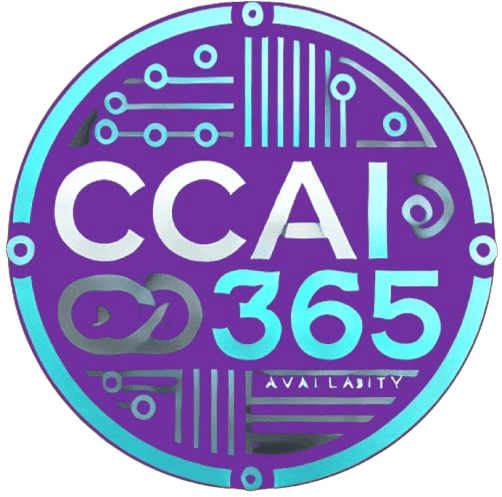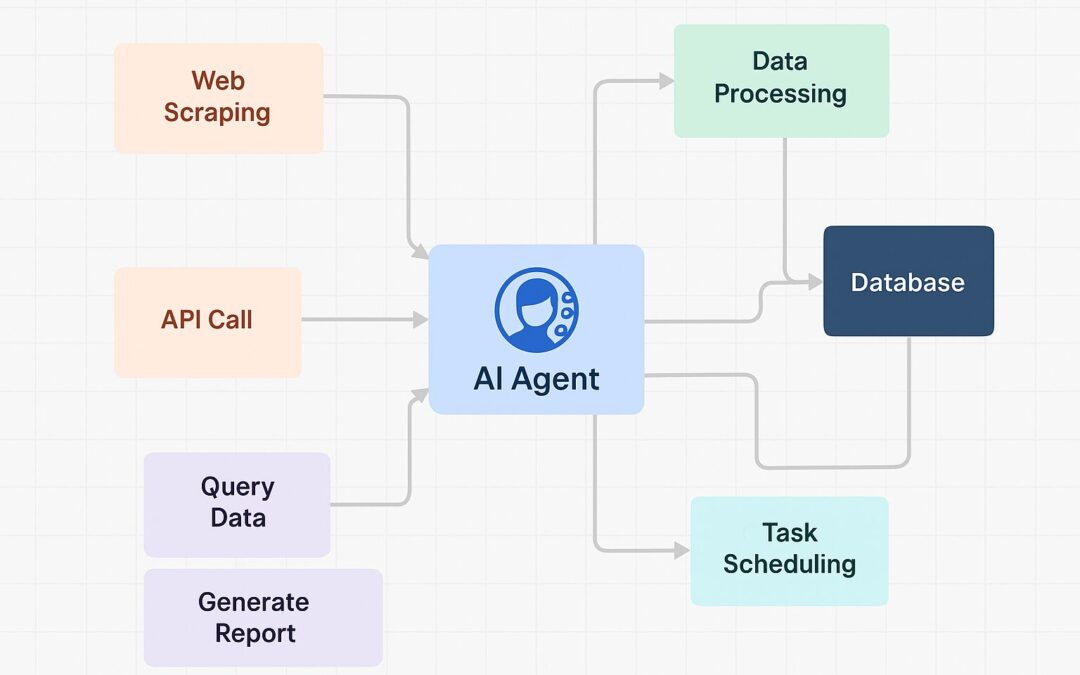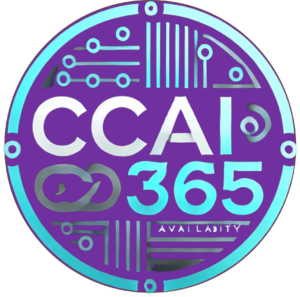Introduction to AI Workflow Automation
In today’s fast-paced business environment, small businesses are under increasing pressure to keep up with larger competitors. With limited resources and ever-growing demands, small business owners often find themselves juggling multiple roles, making it difficult to maintain efficiency and stay ahead of the curve. However, technological advancements, especially in AI workflow automation, present an exciting opportunity for small businesses to streamline their operations and enhance productivity. By incorporating AI agents into everyday tasks, businesses can automate repetitive processes, improve decision-making, and focus on what truly matters – growth and customer satisfaction.
AI workflow automation is a powerful tool that allows small businesses to optimize their operations, reduce errors, and improve efficiency. This technology, combined with AI agents, can revolutionize the way small businesses operate. In this article, we will explore the various ways AI workflow automation and AI agents can transform your small business, boost productivity, and give you a competitive edge in today’s market.
The Impact of AI Workflow Automation on Small Business Productivity
Productivity is the backbone of any successful small business. As a small business owner, you know how valuable time is. Every minute spent on mundane, repetitive tasks is time taken away from growing your business, serving customers, and making strategic decisions. That’s where AI workflow automation comes in. By automating routine tasks and streamlining processes, AI technology frees up valuable time for your employees to focus on more impactful work.
One of the most significant impacts of AI workflow automation is the ability to handle repetitive and time-consuming tasks without human intervention. For example, AI agents can automatically process invoices, track inventory, update customer records, and even manage communications. This reduces the burden on your staff, enabling them to focus on tasks that require creativity, critical thinking, and personal interaction with clients. The result is a more efficient and productive workforce that can achieve higher output with fewer resources.
Additionally, AI workflow automation can help eliminate human errors, which are common in manual processes. AI agents follow precise algorithms and instructions, ensuring that tasks are completed accurately and consistently every time. This accuracy can greatly enhance the quality of your service and reduce the chances of costly mistakes. For instance, automating data entry with AI agents can minimize the risk of entering incorrect information, which could otherwise lead to misunderstandings with customers or inventory discrepancies.
The benefits of AI workflow automation go beyond task completion. It allows for better time management and the ability to scale operations. As your business grows, AI agents can handle an increasing workload without the need for hiring additional employees. This scalability ensures that your business can continue to expand without overwhelming your team or compromising the quality of your services. By improving productivity, AI workflow automation gives small businesses the ability to grow and thrive in a competitive marketplace.
Why AI Agents Are Essential for Automating Routine Tasks
Routine tasks are a necessary part of business operations, but they often consume valuable time and resources that could be better spent elsewhere. As a small business owner, you’re probably familiar with the burden of managing tasks like scheduling appointments, responding to customer inquiries, processing orders, or updating records. These activities are essential for day-to-day operations, but they don’t directly contribute to the strategic growth of your business. This is where AI agents become invaluable.
AI agents are designed to handle repetitive tasks with speed and efficiency. For example, AI agents can automate customer support by using chatbots that respond to frequently asked questions, resolve basic issues, or direct customers to the appropriate department. This not only ensures that your customers receive quick responses, but it also frees up your customer support team to handle more complex issues. AI agents can also automate email marketing campaigns, social media posts, and other communication processes, allowing your marketing team to focus on more strategic initiatives.
Another area where AI agents excel is in managing inventory. AI agents can track inventory levels in real-time, alerting you when stock is low and automatically placing orders with suppliers. This eliminates the need for manual stock management and ensures that your business is always prepared to meet customer demand without overstocking. With AI-powered inventory management, small businesses can improve efficiency, reduce waste, and prevent stockouts, which could otherwise lead to missed sales opportunities.
AI agents can also automate administrative tasks such as document management, payroll, and scheduling. By integrating AI agents into your workflow, you can ensure that these tasks are completed on time and without errors. This automation allows you to reduce administrative overhead, minimize the risk of mistakes, and ensure that your team stays focused on their core responsibilities. When AI agents handle routine tasks, you not only improve efficiency but also create a more organized and streamlined work environment.
Maximizing Your ROI with AI Workflow Automation Solutions
Investing in AI workflow automation can seem like a significant expense, but the potential return on investment (ROI) is substantial. By automating routine tasks, improving efficiency, and enhancing productivity, AI agents can help small businesses save money and generate higher revenues in the long run.
One of the most immediate ways AI workflow automation improves ROI is by reducing labor costs. By automating manual tasks, you can reduce the need for additional staff to handle those tasks. For example, automating data entry, customer support, and inventory management can significantly decrease the amount of time your employees spend on these activities. This not only cuts down on labor costs but also improves employee satisfaction by allowing them to focus on more engaging, high-value work.
In addition to saving on labor costs, AI workflow automation helps small businesses reduce errors, which can be costly in terms of both time and money. For instance, a simple mistake in an invoice or customer order can lead to delays, customer dissatisfaction, and even financial penalties. By relying on AI agents to handle tasks that require precision, small businesses can minimize these risks and improve the overall quality of their products and services.
Another key benefit of AI workflow automation is the ability to scale your business without significantly increasing operational costs. As your business grows, AI agents can handle more tasks and larger volumes of work without the need for a proportional increase in staff. This scalability ensures that your business can expand efficiently and sustainably, maximizing your ROI over time.
Finally, AI workflow automation allows small businesses to make more data-driven decisions. By collecting and analyzing data from automated processes, AI agents provide valuable insights into customer behavior, inventory levels, and operational performance. This data can be used to optimize business strategies, improve marketing efforts, and identify new growth opportunities, ultimately driving higher profits.
How AI Agents Can Help Small Businesses Stay Competitive
In today’s competitive market, small businesses must constantly adapt to changing trends and customer expectations. AI workflow automation and AI agents provide a powerful tool for staying ahead of the competition. By automating processes and improving efficiency, small businesses can offer faster, more reliable services that appeal to customers who expect convenience and responsiveness.
AI agents can enhance customer experience by providing instant support and personalized interactions. For example, AI-powered chatbots can engage with customers 24/7, offering product recommendations, answering inquiries, and even processing orders. This level of accessibility and responsiveness not only improves customer satisfaction but also builds brand loyalty.
In addition to improving customer experience, AI agents can help small businesses analyze market trends and predict future demand. By processing large amounts of data, AI agents can identify patterns and provide insights into customer preferences, market shifts, and competitor activity. This data-driven approach allows small businesses to make more informed decisions about product offerings, pricing strategies, and marketing campaigns, giving them a competitive edge.
Moreover, AI agents can optimize internal processes, ensuring that small businesses operate with greater efficiency than their competitors. By automating routine tasks and improving collaboration between departments, AI agents help businesses reduce downtime and keep operations running smoothly. This enhanced efficiency allows small businesses to deliver products and services more quickly, meeting customer demands faster than larger competitors.
Overcoming Common Challenges When Integrating AI Workflow Automation
While AI workflow automation offers tremendous benefits, it’s not without its challenges. Many small businesses face obstacles when integrating AI technology into their existing systems. Common issues include a lack of understanding of the technology, initial implementation costs, and concerns about data privacy and security.
One of the primary challenges small businesses face is understanding how to implement AI workflow automation effectively. AI technology can be complex, and integrating it into your business operations requires careful planning and consideration. It’s important to assess which tasks can be automated and ensure that your employees are trained to work alongside AI agents. Start by automating small, repetitive tasks and gradually expand as you become more comfortable with the technology.
Another challenge is the upfront cost of AI solutions. While AI workflow automation can save money in the long run, the initial investment can be daunting for small businesses. However, many AI providers offer scalable solutions that can be tailored to your business’s needs, allowing you to start small and scale as needed. Look for affordable AI tools with flexible pricing plans that match your budget.
Data privacy and security are also important concerns when adopting AI technology. Since AI agents handle sensitive customer data, it’s essential to ensure that your AI solutions comply with data protection regulations. Work with reputable AI vendors that prioritize data security and implement robust measures to protect your customers’ information.
By addressing these challenges head-on, small businesses can successfully integrate AI workflow automation and reap the many benefits it offers.
Conclusion
AI workflow automation and AI agents are powerful tools that can transform how small businesses operate. By automating routine tasks, improving productivity, and maximizing ROI, small businesses can stay competitive and scale effectively. Although the integration process may come with challenges, the rewards of AI technology are well worth the investment. With AI agents handling the heavy lifting, your small business can focus on growth, innovation, and delivering exceptional customer experiences. The future of small business operations is here, and AI workflow automation is leading the way.
If you need help to incorporate AI Workflow Automations into your daily tasks so you can spend more time growing your business, contact Mike with CCAi365 at 252-668-1640. His development team can help make your life easier.


